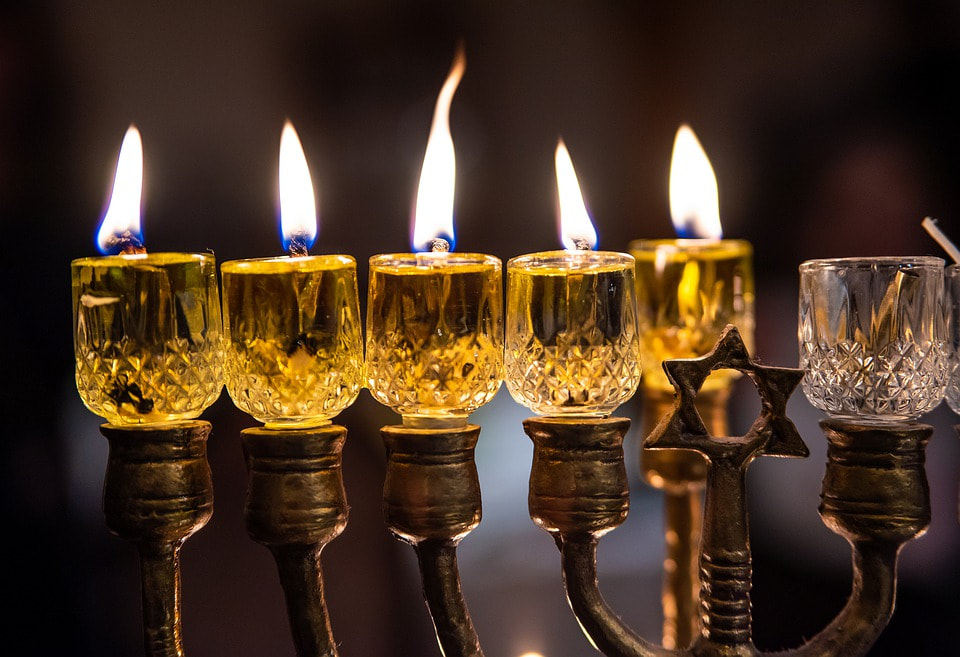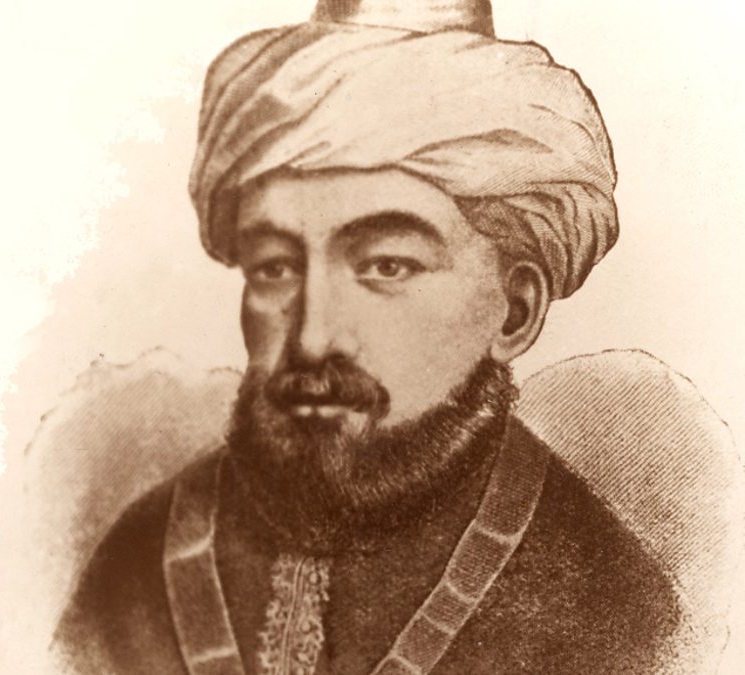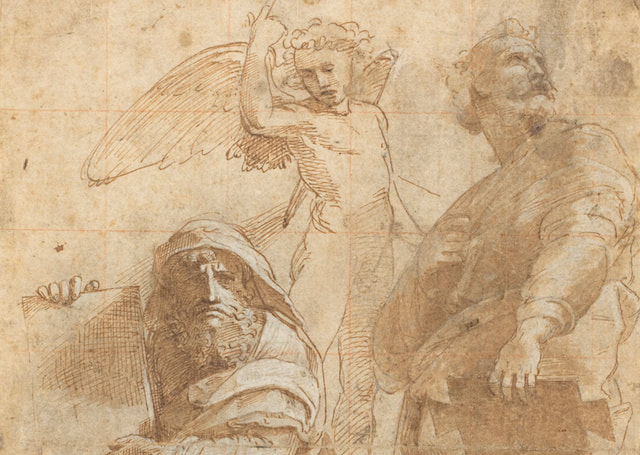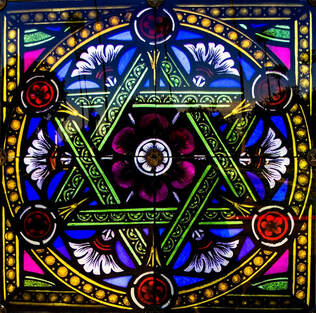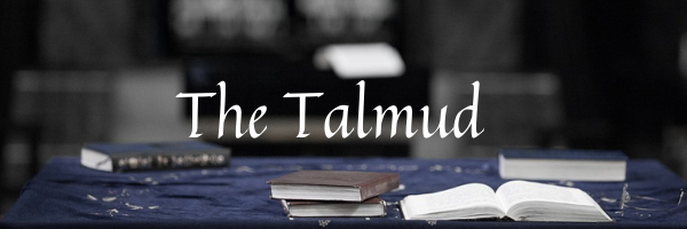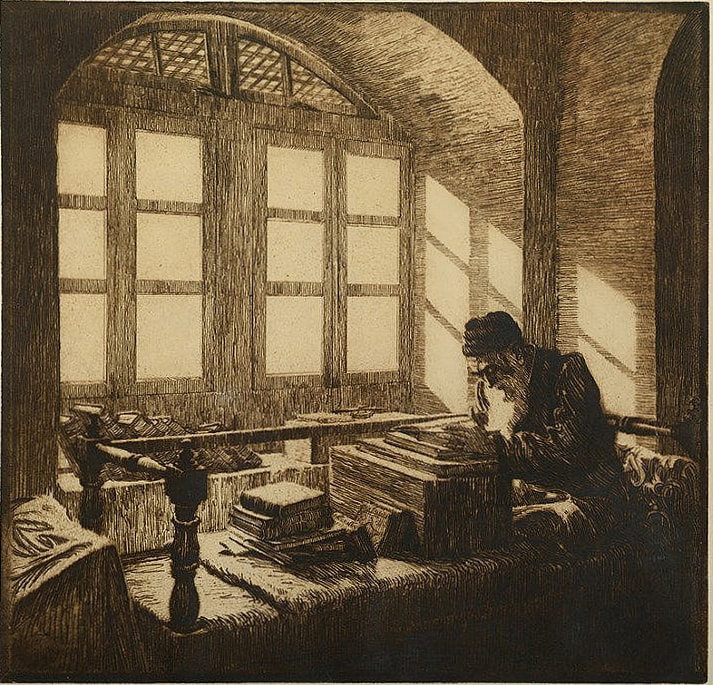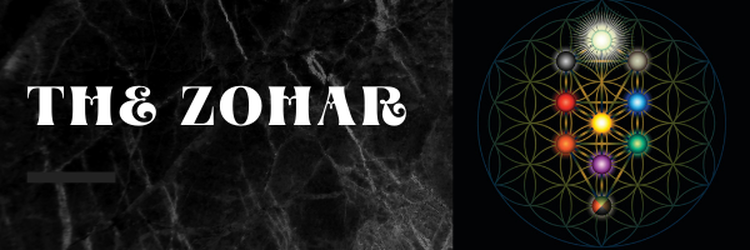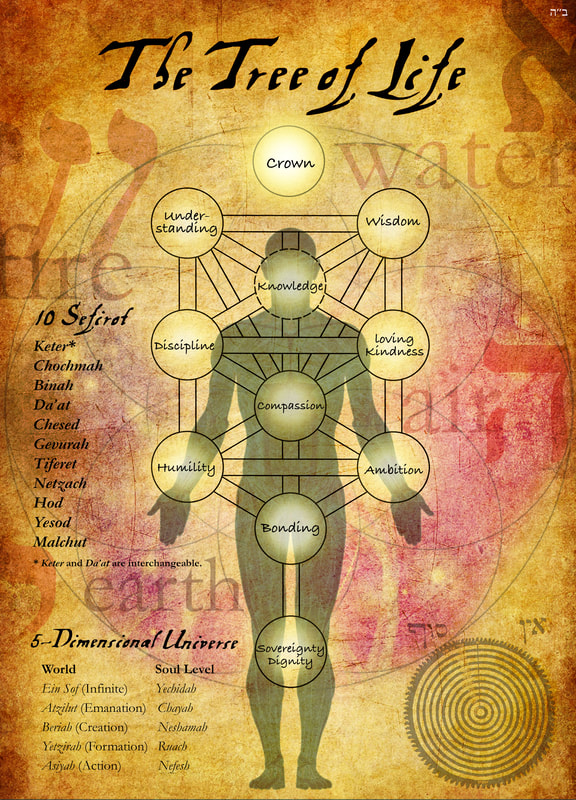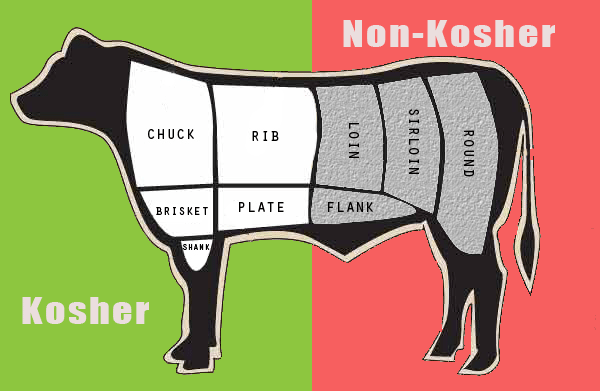|
Judaism is a religion founded on a belief in the God of Abraham, Isaac, and Moses.
The God of the Israelites revealed His named to Moses, though it's exact pronunciation is unknown to us today. In the Jewish faith it's represented by the Hebrew Tetragrammaton ("four letters") יהוה (Yod Heh Vav Heh). |
The Tetragrammaton was later translated into Roman Script as YHWH, which is why it's commonly pronounced as "Yah-Weh" by non-Hebrew speakers.
Due to Deut. 12:3, which commands that God's name never be erased or defaced, Jews do not take the name of God lightly. This is why you'll often see it written without vowels, and why YHWH is sometimes referred to as G-d.
Due to Deut. 12:3, which commands that God's name never be erased or defaced, Jews do not take the name of God lightly. This is why you'll often see it written without vowels, and why YHWH is sometimes referred to as G-d.
One of the core beliefs of Judaism is that the Jews are God's chosen people, who He has worked through over the course of history. The term "Jew" itself, however, can be a little tricky to define because it can refer either to a person of the Jewish race or to followers of the Jewish religion.
For example, someone can be born into a Jewish family and participate in Jewish culture without believing in God or practicing the Jewish religion. They would be classified as an ethnic Jew.
On the other hand, most (but not all Jews) agree that someone may also be called a Jew if they practice the Jewish faith, whether they were born an ethnic Jew or not. While the exception of a small number of very orthodox Jews, most believe that conversion is possible for those born of other races.
For example, someone can be born into a Jewish family and participate in Jewish culture without believing in God or practicing the Jewish religion. They would be classified as an ethnic Jew.
On the other hand, most (but not all Jews) agree that someone may also be called a Jew if they practice the Jewish faith, whether they were born an ethnic Jew or not. While the exception of a small number of very orthodox Jews, most believe that conversion is possible for those born of other races.
The 13 Articles of Judaism
|
In the 12th century CE, a Jewish Rabbi and philosopher named Moses Maimonides wrote what came to be known as the 13 articles of faith.
Much like Christianity, Judaism has a variety of different denominations. But the 13 articles of faith tend to provide a solid overview of the foundations of Jewish religious beliefs in general. |
The Articles of Faith
Jews believe that everyone has the capacity for both good and evil. Much as in other religions, an individual's actions are considered a testament to their faith or lack thereof.
- God alone is the creator and ruler of all things. He alone has made and will continue to make all things.
- There is only one God and He is unique.
- God does not have a body or material form. He transcends time and material reality.
- God is eternal.
- God and God alone deserves worship, praise, and prayer.
- The prophets were valid and spoke only the truth.
- Moses was the greatest of the prophets.
- Moses was given the oral and written traditions of the Torah.
- There is no other valid Torah and never will be another.
- God knows the hearts and deeds of all men, nothing is hidden from Him.
- God rewards the good and punishes the wicked.
- There is a Messiah who is yet to come.
- The dead will be resurrected.
Jews believe that everyone has the capacity for both good and evil. Much as in other religions, an individual's actions are considered a testament to their faith or lack thereof.
Jewish Holy Books
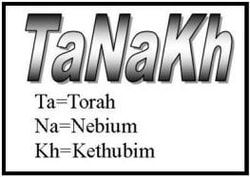
Jewish morality is largely shaped around two holy books, the Tanakh and the Talmud. The Tanakh is a set of scriptures that contain Jewish law, while the Talmud contains explanations and interpretations of those laws.
THE TANAKH
The Tanakh is a library of 24 holy books, which Christians refer to as the Old Testament. In the Jewish faith, the Tanakh is traditionally divided into 3 main sections:
1. The Torah ("Teachings" or "Law")
The Torah are the first five books of the Tanakh, all of which were said to be written by Moses. Considered by many Jews to be the holiest part of the Tanakh, the Torah means "instruction," "teaching," or "law."
The books of the Torah contains a record of the history of the Jewish people, as well as a record of the many revelations they received from God. These revelations from God gave the ancient Israelites a set of individual and moral guidelines that showed them how to live according to His will.
They include:
The Torah is also where you'll find both the creation and flood stories, as well as an account of how the Israelites descended from Abraham.
It also details accounts of the Israelites' enslavement in Egypt, their escape, and their journey to the promised land.
THE TANAKH
The Tanakh is a library of 24 holy books, which Christians refer to as the Old Testament. In the Jewish faith, the Tanakh is traditionally divided into 3 main sections:
1. The Torah ("Teachings" or "Law")
The Torah are the first five books of the Tanakh, all of which were said to be written by Moses. Considered by many Jews to be the holiest part of the Tanakh, the Torah means "instruction," "teaching," or "law."
The books of the Torah contains a record of the history of the Jewish people, as well as a record of the many revelations they received from God. These revelations from God gave the ancient Israelites a set of individual and moral guidelines that showed them how to live according to His will.
They include:
- Genesis
- Exodus
- Leviticus
- Numbers
- Deuteronomy.
The Torah is also where you'll find both the creation and flood stories, as well as an account of how the Israelites descended from Abraham.
It also details accounts of the Israelites' enslavement in Egypt, their escape, and their journey to the promised land.
The books of the Early Prophets are mostly records of various ancient prophets and kings. The books of the Later Prophets are the prophecies, oracles, and narratives of a line of prophets from the mid 8th to 5th century BC.
Books of the Early Prophets include:
Joshua
Judges
Samuel
First and Second Kings.
Books of the Later Prophets include:
Isaiah
Jeremiah
Ezekiel
The 12 Minor Prophets: Hosea, Joel, Amos, Obadiah, Jonah, Micah, Nahum, Habakkuk, Zephaniah, Haggai, Zechariah, and Malachi.
Books of the Early Prophets include:
Joshua
Judges
Samuel
First and Second Kings.
Books of the Later Prophets include:
Isaiah
Jeremiah
Ezekiel
The 12 Minor Prophets: Hosea, Joel, Amos, Obadiah, Jonah, Micah, Nahum, Habakkuk, Zephaniah, Haggai, Zechariah, and Malachi.
- The Five Scrolls aka the Megillot- Song of Songs, Ruth, Lamentations, Ecclesiastes, and Esther.
-Prophecy- Daniel
History- Daniel, Ezra, Nehemiah, and First and Second Chronicles
Daniel is the story of a prophet, named (good guess) Daniel, often famous for his Lion’s den escapade. Daniel was also a prophet who interpreted dreams and recorded prophecies, some about the end of time.
Ezra- was written at a time when the Jews were returning to Judea from exile in Babylon at the end of the 6th century BC and records their attempts at and obstacles over rebuilding their Temple and beginning a new life.
Nehemiah- was a governor of Judea in the 5th century BC while it was still under Persian rule. This book is a record of his attempts to build a wall around Jerusalem to make it a safe place to live again, because all the Jews of that time where scattering to the surrounding villages for safety reasons where some had started to dabble in pagan religions.
First and Second Chronicles- are basically ancient court records that recount the reign of kings, down to King David in the first book, and down through all the kings until the Jews’ Babylonian exile in the second.
-Prophecy- Daniel
History- Daniel, Ezra, Nehemiah, and First and Second Chronicles
Daniel is the story of a prophet, named (good guess) Daniel, often famous for his Lion’s den escapade. Daniel was also a prophet who interpreted dreams and recorded prophecies, some about the end of time.
Ezra- was written at a time when the Jews were returning to Judea from exile in Babylon at the end of the 6th century BC and records their attempts at and obstacles over rebuilding their Temple and beginning a new life.
Nehemiah- was a governor of Judea in the 5th century BC while it was still under Persian rule. This book is a record of his attempts to build a wall around Jerusalem to make it a safe place to live again, because all the Jews of that time where scattering to the surrounding villages for safety reasons where some had started to dabble in pagan religions.
First and Second Chronicles- are basically ancient court records that recount the reign of kings, down to King David in the first book, and down through all the kings until the Jews’ Babylonian exile in the second.
|
There are actually two different versions of the Talmud, each of which was compiled over the course of several hundred years by a collection of Israeli and Babylonian sages and rabbis.
Today these works are known as the Jerusalem Talmud and the Babylonian Talmud. The Babylonian Talmud is the most popular and is usually what most Jews are referring to when they talk about the Talmud in general. |
Talmud is Hebrew for "learning" and the Talmud itself largely consists of what's known as the Mishnah.
The Mishnah is a collection of Jewish laws and traditions that were passed down orally for centuries. They were first gathered and put into written collection by Rabbi Judah the Prince (Yehudah HaNasi) and his followers around 200 CE,, following the destruction of the Second Temple in Jerusalem.
The Mishnah is now compiled in six different volumes. Together they form the textual foundation of rabbinic law.
The Talmud also includes the Gemara, which is a collection of rabbinic analysis, discussions, and interpretations of the Mishnah and other rabbinic writings on the Hebrew Bible or a variety of other subjects.
Two forms of writing that appear in the Talmud are often referred to as Halakha and Aggadah.
Halakha (Hebrew: “the Way”) writings refer to Jewish laws that are intended to shape the lives of and customs of the Jewish people.
Aggadah ("tales, fairytale, lore") writings tend to be more diverse and philosophical in nature. They sometimes use tools like parables and legends to demonstrate various aspects of Jewish law and tradition.
The Mishnah is a collection of Jewish laws and traditions that were passed down orally for centuries. They were first gathered and put into written collection by Rabbi Judah the Prince (Yehudah HaNasi) and his followers around 200 CE,, following the destruction of the Second Temple in Jerusalem.
The Mishnah is now compiled in six different volumes. Together they form the textual foundation of rabbinic law.
The Talmud also includes the Gemara, which is a collection of rabbinic analysis, discussions, and interpretations of the Mishnah and other rabbinic writings on the Hebrew Bible or a variety of other subjects.
Two forms of writing that appear in the Talmud are often referred to as Halakha and Aggadah.
Halakha (Hebrew: “the Way”) writings refer to Jewish laws that are intended to shape the lives of and customs of the Jewish people.
Aggadah ("tales, fairytale, lore") writings tend to be more diverse and philosophical in nature. They sometimes use tools like parables and legends to demonstrate various aspects of Jewish law and tradition.
|
The Zohar, which first appeared around the 12-13th centuries, is the most important text of Kabbalah, a school of Judaism that revolves around mysticism and esoteric knowledge.
The Jewish scriptures describe plenty of instances in which men make contact with God, receive sacred knowledge, and see visions. That said, they never really explain how prophets such as Moses and Joshua were able to have achieve such esoteric experiences. Some believe that Jewish oral law has always included a set of secret or "hidden" aspects of the Jewish faith that were only passed down to a chosen few. |
Followers of Kabbalah believe that the Zohar is a written record of these hidden teachings of the Jewish tradition.
While the authorship of the Zohar remains shrouded in mystery, its widely believed that at least a portion of it was written by Rabbi Shimon bar Yochai (Rashbi). A master teacher of the Kabbalah, some believe that he wrote the document while in hiding, as the Roman Empire occupied Israel during his lifetime.
Others believe that while he almost certainly began the document, it was likely added to by additional rabbis and scholars over the course of many years.
While the authorship of the Zohar remains shrouded in mystery, its widely believed that at least a portion of it was written by Rabbi Shimon bar Yochai (Rashbi). A master teacher of the Kabbalah, some believe that he wrote the document while in hiding, as the Roman Empire occupied Israel during his lifetime.
Others believe that while he almost certainly began the document, it was likely added to by additional rabbis and scholars over the course of many years.
While these rules were given to ancient Jews by G-d, many (though not all) modern Jews still follow them today. Some do so out of a sense of tradition or religious duty, while others stick to Kosher diets because they've been proven to have certain health benefits.
According to Kosher law, followers are directed to eat only certain types of food or food that has been prepared in a specific way. Kosher law is pretty extensive and requires some research to really understand.
That said, here are a few examples of Kosher dietary guidelines, just to give you an idea:
- Fish must have scales and fins in order to be considered acceptable to eat. So while fish such as tuna and salmon are okay, shellfish like crabs or lobster are no-no's.
- Only four legged animals which chew cud and have cloven hooves are acceptable to eat. This rules out pork, but allows for animals like cow and deer to be considered fair game.
- While it's okay to eat birds like chicken and geese, birds of prey are forbidden delicacies.
- If an animal is forbidden to eat, then so are its by-products. For example, you couldn't eat the eggs of a bird of prey or drink the milk of a non-qualifying animal.
- There can be no blood left in meat, nor any fat that surrounded an animal's internal organs.
- Fat that is found under the skin and around that muscles, however, is okay to eat.
- Meat and dairy cannot be mixed in the same meal.
- Fruits, vegetables, and grains can be eaten, but only after being inspected for bugs (which cannot be eaten.)
- Grape products made by non-Jews are not considered Kosher.
- Animals must be killed using a specific procedure that involves slitting their throats with a sharp knife in such a way that they don't feel any pain.
- Animals that have been killed by other animals or that have died of natural causes can not be eaten.
- Animals must be thoroughly examined to make sure their bodies and organs have no disease or flaws before they can be eaten.
While the Tanakh never comes right out and mentions heaven or hell, it does mention a hades-style place called "Sheol." (Num. 16:33; Ps. 6:6; Isa. 38:18) It also makes clear allusions to the idea of life after death in which souls with either be punished or rewarded for their lives on earth.
"Many of them that sleep in the dust of the earth shall awake, some to everlasting life, and some to reproaches and everlasting abhorrence (Dan. 12:2; see also Isa. 26:19; Ezek. 37:1 ff.)."
Additionally, it records that the prophet Enoch was "taken" by God and walked alongside him after death (Gen. 5:24) and that the prophet Elijah was carried towards the heavens in a chariot of fire. (II Kings 2:11)
Jewish belief in the afterlife has taken several forms throughout time but most modern Jews tend to believe in some form of immortality. Some believe that the soul travels to another spiritual realm after death, while others believe that it will be restored to the body during the messianic redemption.
Kabbalists tend to have a view of the after life that is a bit more complex. Many believe that each soul is put on earth to complete a given task. Those who complete their tasks are welcomed into heavenly realms, while those who did not may either be reincarnated again or sent to Gehinom, which is sort of like a spiritual prison, to be purged of their crimes. Unlike hell, however, souls sent to Gehinom are rarely forced to remain their for more than 11 months.
In some extreme cases, a soul may be so wicked that it's denied even entry to Gehinom or reincarnation and is considered lost.
"Many of them that sleep in the dust of the earth shall awake, some to everlasting life, and some to reproaches and everlasting abhorrence (Dan. 12:2; see also Isa. 26:19; Ezek. 37:1 ff.)."
Additionally, it records that the prophet Enoch was "taken" by God and walked alongside him after death (Gen. 5:24) and that the prophet Elijah was carried towards the heavens in a chariot of fire. (II Kings 2:11)
Jewish belief in the afterlife has taken several forms throughout time but most modern Jews tend to believe in some form of immortality. Some believe that the soul travels to another spiritual realm after death, while others believe that it will be restored to the body during the messianic redemption.
Kabbalists tend to have a view of the after life that is a bit more complex. Many believe that each soul is put on earth to complete a given task. Those who complete their tasks are welcomed into heavenly realms, while those who did not may either be reincarnated again or sent to Gehinom, which is sort of like a spiritual prison, to be purged of their crimes. Unlike hell, however, souls sent to Gehinom are rarely forced to remain their for more than 11 months.
In some extreme cases, a soul may be so wicked that it's denied even entry to Gehinom or reincarnation and is considered lost.
What Know More? Be sure to check out:

